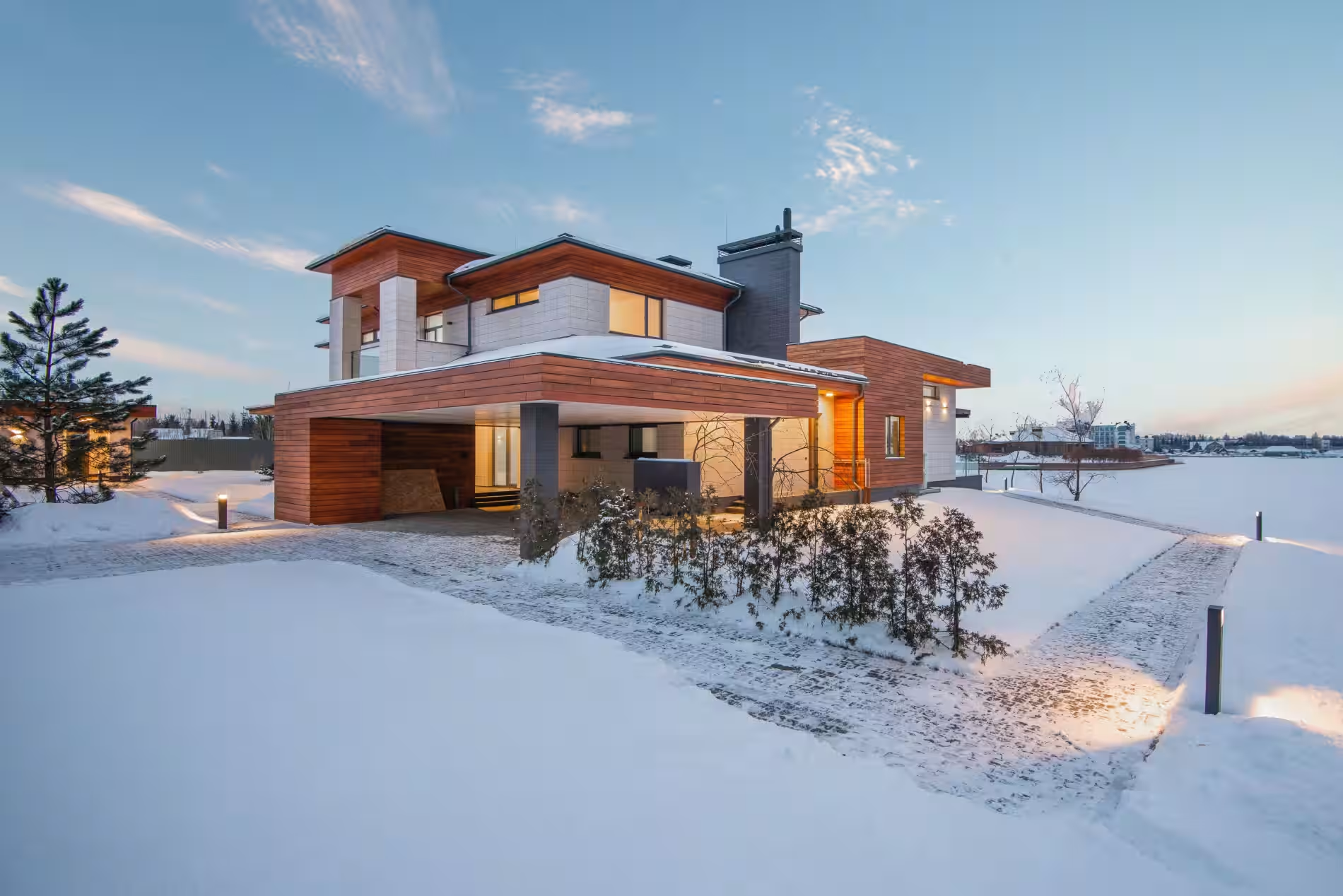Your boiler is your essential companion in winter. It keeps your house warm and cosy as the nights draw in and the first frost touches the ground. It is necessary to keep on top of your boiler maintenance during winter alongside the right insurance policy in place to avoid being without warmth.
In this guide, we’ll cover the critical boiler maintenance tips you need to know, from the best boiler setting for winter to uncovering the cost of boiler insurance. Within this guide, you’ll learn common boiler problems you must know about during the cold months and how to mitigate them.
What temperature should my boiler be set at in winter?
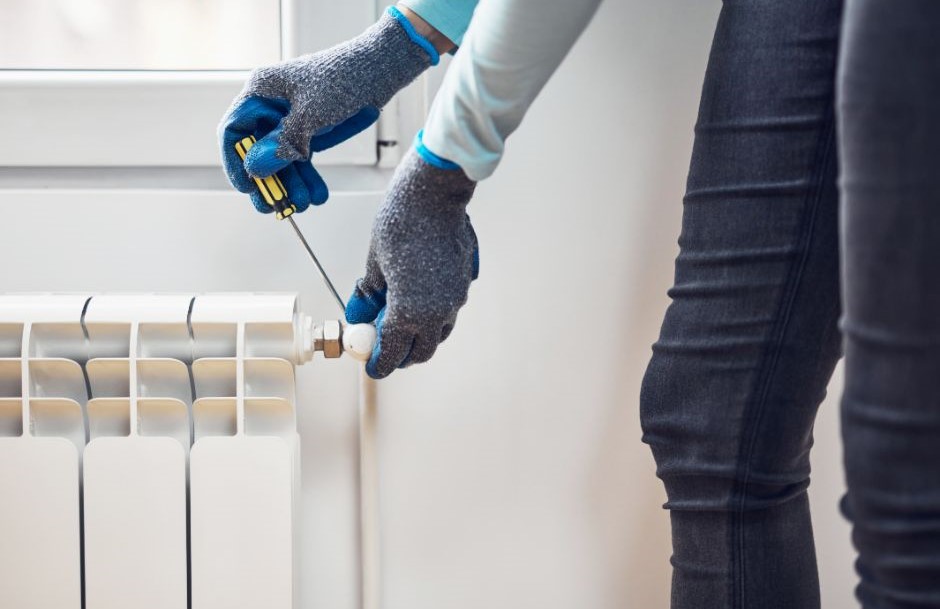
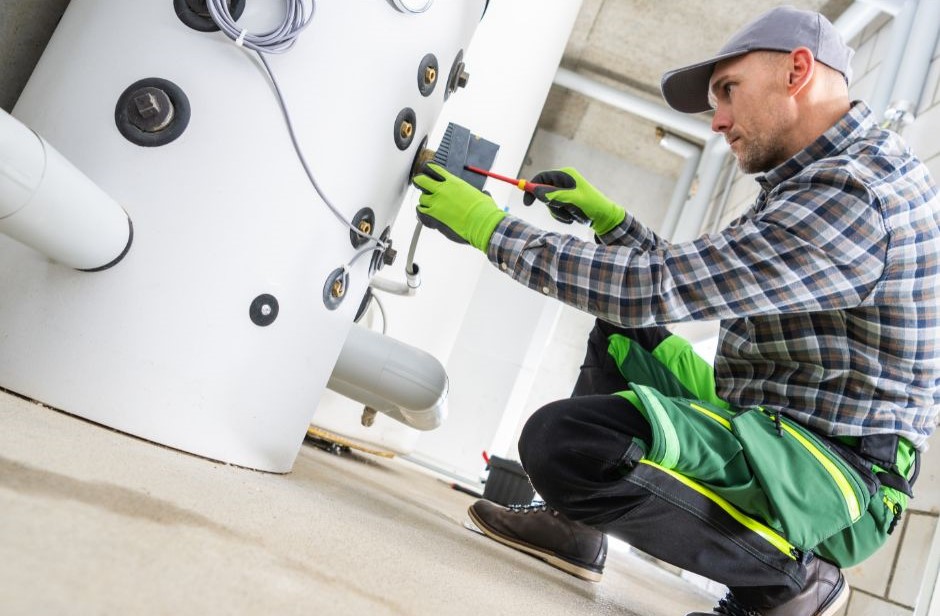
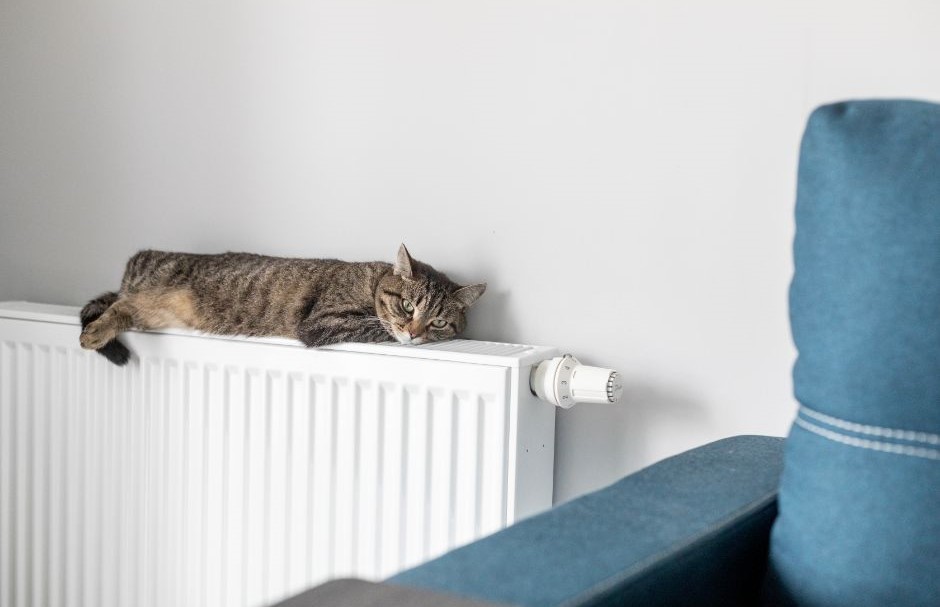
During winter, according to Valiant, you should set your boiler temperature to anywhere between 60℃-70℃ (note this is not the thermostat temperature). However, the best boiler setting for winter will depend on factors such as the type of boiler you have, the age of your home, the level of insulation and your personal preference.
If you have an older home that’s not so well insulated, you might need to set your boiler to a slightly higher temperature. But remember that setting it too high could waste energy and precipitate boiler issues.
If you have a newer, combi boiler and your home is well insulated, you likely could have your boiler set to between 50℃ – 55℃. Keeping it at a lower temperature will help improve efficiency and reduce the cost of your heating.
Common winter boiler problems you might face
In winter, your boiler works harder than ever to keep your home warm and up to your chosen temperature. As a result, boilers often have more problems in winter. Having a broken boiler in winter can be a nightmare, so it’s important to recognise common problems in winter and what to do about them.
- Low pressure
A boiler pressure gauge reading of 1 bar or less indicates low boiler pressure. Although it’s not indicative of a severe issue, low pressure means that the boiler has to work harder to heat the home, affecting the efficiency and, ultimately, the cost of running your boiler.
Low pressure can be caused by a water leak in the boiler or the system itself, most likely due to when a radiator was recently bled or if there’s a corroded part in the system. You can try repressurising a boiler yourself. However, it’s best to call in a professional to get the job done.
- Leaks
Leaks in your boiler system can cause water damage to your home and, at worst, electrical problems with the boiler itself. They can be caused by several things, from corroded pipes to faulty seals and high pressure.
It’s best to get a professional to check what’s causing the leaks and give their expert opinion. In most cases, they’ll be able to fix the issue, but in some cases, the boiler might need replacing.
- Odd noises
We’ve all heard the weird noises from the boiler and its pipes. During winter, these noises can be more dramatic, but sometimes they are symptomatic of problems such as low pressure, a broken valve, or a sludge build-up in the water pipes.
Odd squeaks, gurgles, vibrations, and rattling are common, but it’s best to prepare your boiler for winter and get an expert out if you hear something new or concerning.
- Frozen pipes
Frozen pipes occur when the water inside the pipes freezes, expanding and blocking the water flow. This common boiler issue can lead to severe problems, such as a lack of heating, burst pipes, and water damage to your home, so it’s critical to be aware and get it sorted.
Extreme cold weather, exposed pipes, and poor insulation are all factors that could lead to a frozen pipe. To upkeep the maintenance of your boiler system, you should ensure that any exposed pipes are insulated and external taps are closed.
If you find a frozen pipe, turn the water off at the main stopcock immediately and get a plumber in to prevent any severe issues. You can do this by going to the ‘Home Emergency’ section of your high-value home insurance policy, finding the claims number and calling them.
- No heating or no hot water
If your boiler is not providing heating or hot water, it is likely due to a severe problem. Some common causes include a faulty thermostat, blocked flue, frozen pipe, low boiler pressure, or faulty boiler.
The first thing you should do is check your thermostat to make sure it is set correctly. If it’s at the correct temperature, you may want to:
- Check the boiler pressure
- Check to make sure the flue isn’t blocked
- Check the radiator temperature and bleed to ensure proper circulation
- Try resetting your boiler if necessary
If all else fails, it’s time to call out a qualified heating engineer to diagnose the problem. You can do this by going to the ‘Home Emergency’ section of your high-value home insurance policy, finding the claims number, and calling them.
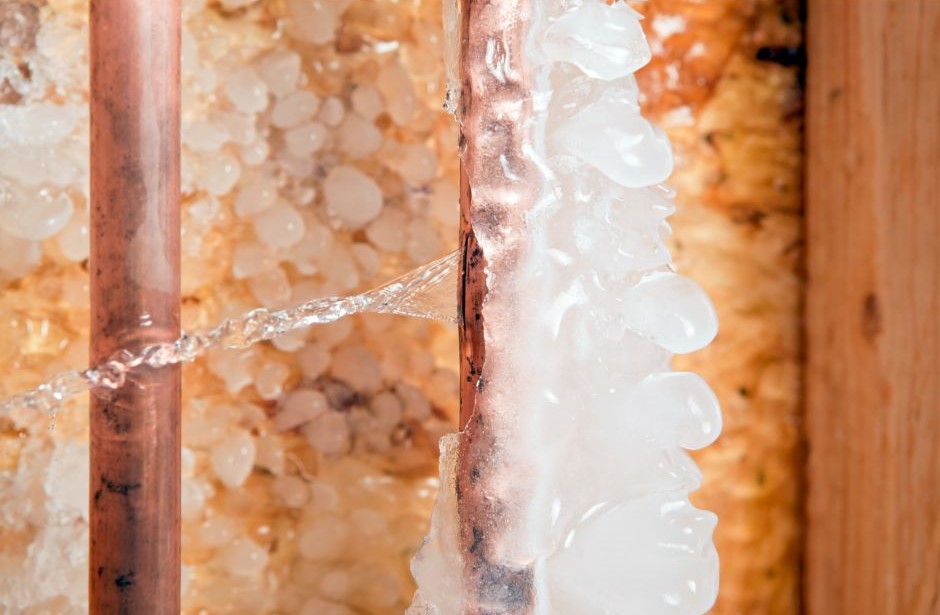
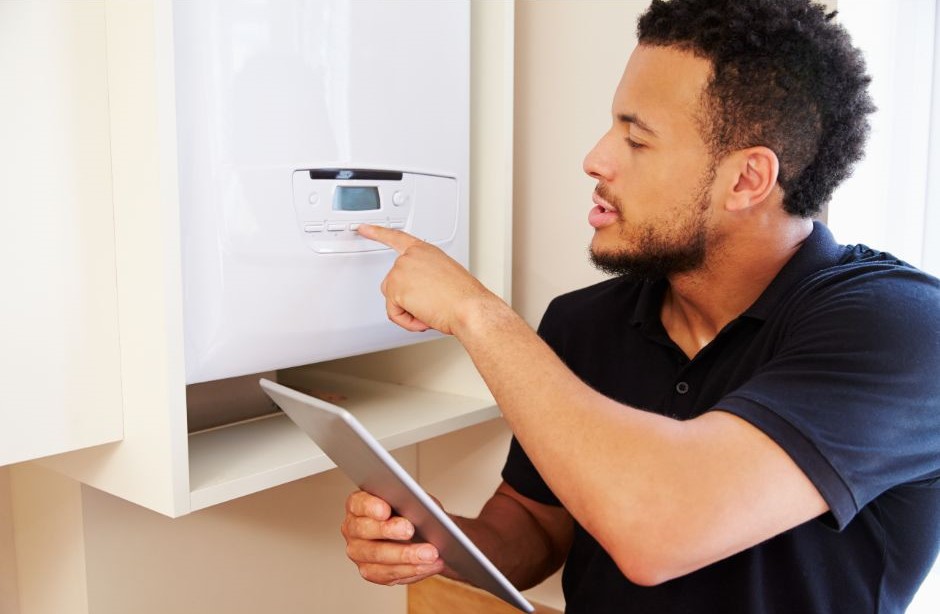
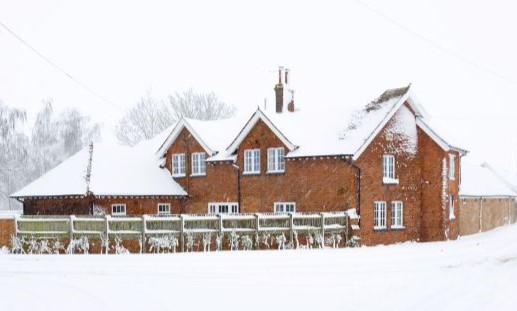
Does high-home home insurance cover my boiler?
The boiler cover is cascaded to the Home Emergency section of a home insurance policy. Most standard home insurance policies do not include Home Emergency as standard. To have this cover, you must add it as an optional extra and pay the additional premium accordingly. If you opt to pay extra and include this cover, however, be careful to read the policy wording, as the cover can be restrictive.
In contrast, high-value home insurance will include Home Emergency as standard and have generous coverage. It’s important to note:
- Wear and tear, or gradual deterioration, are standard exclusions on home insurance policies. If your boiler breaks down because it’s old and you want to claim a replacement, you will not be covered
- If your boiler is damaged as a result of a peril covered under your home insurance policy, IE, a fire to your kitchen significantly damages the kitchen and boiler, you will be covered
- If the boiler breaks down, causing an emergency to the home (IE, heating stops or water is leaking out), then Home Emergency will cover the emergency, to put it right, and you could claim the home insurance for resultant damage (if the peril is covered within your home policy wording)
The definition of a boiler covered under high-value home insurance policies varies depending on the product. According to most high-value home policy wordings, the type of residential boiler covered is along the following lines:
- A boiler not over 15 years old and/or
- A boiler annually maintained and/or
- A boiler not beyond economical repair at the point of damage (i.e. the cost of repairing the appliance is more than the cost of replacing it) and/or
- A boiler with an output of less than 60kw (kilowatt) per hour or 250,000 BTU (British thermal unit).
An ultra-high-value home insurance product will have a more liberal definition, offering more comprehensive coverage. Contact Stanhope Insurance today to find the right policy that covers your type of boiler.
Home Emergency – How is it defined within a high-value home insurance policy?
Home Emergency Claims – What are the maximum claims limit?
Home Emergency Claims – Does it affect my no-claims bonus?
Home Emergency Claims – Can I claim on the main home insurance part if I have claimed on the home emergency aspect?
Should I purchase a stand-alone boiler cover if I have a high-value home insurance policy?
An option at your disposal is specific boiler insurance or boiling and heating cover, separate from your high-value home insurance. This type of policy differs from the home emergency section of a high-value home insurance policy. A particular boiler policy solely covers the boiling and heating system rather than the contents of your home.
Separate boiler insurance can give you peace of mind, but before purchasing this, you need to consider a few things:
- Suppose you have an old boiler (older than 15 years), a boiler with a risk of breaking down, a boiler with ongoing significant problems, or a boiler that has yet to be annually maintained. In that case, you might not be covered under any new policy since wear and tear, gradual deterioration, or damage before a policy period are general exclusions.
- Check the Home Emergency section of your high-value home insurance policy wording; there would be no value in purchasing a stand-alone policy should the coverage be similar to your high-value home policy. However, High-value home insurance products will not cover you for a replacement boiler, so if you’re looking for that sort of peace of mind, you should consider a stand-alone boiler cover. Always check the wording.
Rest assured, whatever you decide, your high-value home insurance product will offer you some coverage in an emergency. This gives you peace of mind should the worst happen.
As with all high-value home insurance products, if you need specific advice and guidance, talk to your private client broker for more information or consult your policy wording.
